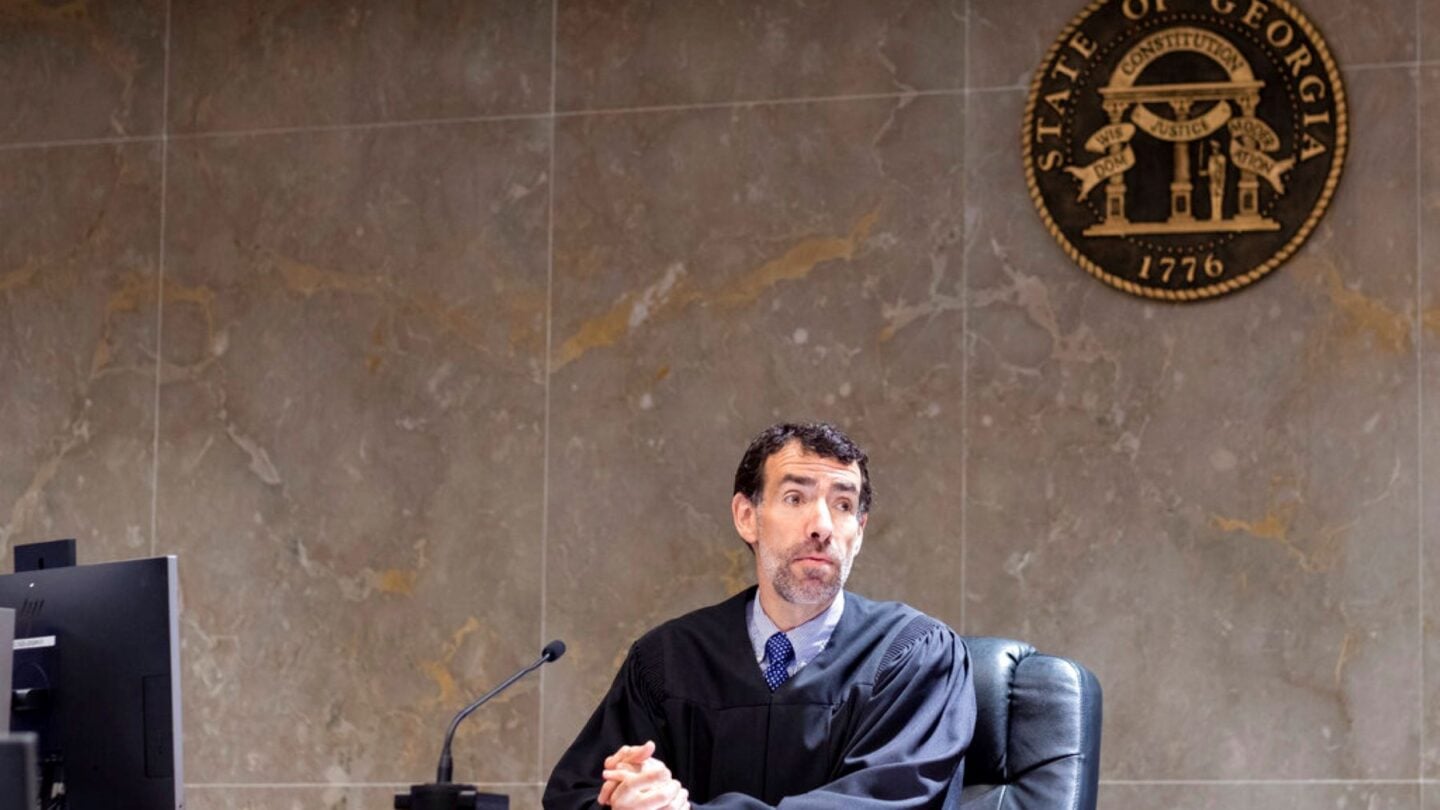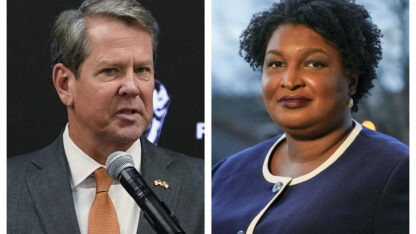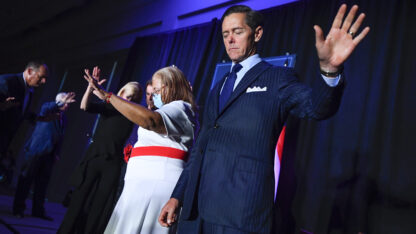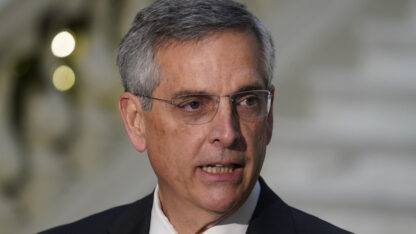Georgia lawmakers appearing before a special grand jury in the investigation into whether former President Donald Trump and others illegally meddled in the state’s 2020 election have broad immunity but can be asked about their conversations with people outside of the legislature, a judge has ruled.
A former state lawmaker and Georgia’s lieutenant governor had asked the judge to quash subpoenas seeking their testimony before the special grand jury, citing legislative privilege and immunity.
Fulton County Superior Court Judge Robert McBurney, who’s overseeing the special grand jury, wrote in an order Wednesday that the pair must comply with the subpoenas, but he set limits on what grand jurors may ask them and other state lawmakers who are summoned.
The special grand jury was seated in May at the request of Fulton County District Attorney Fani Willis, who said in a letter to the county superior court chief judge that her team believes the 2020 general election “was subject to possible criminal disruptions” and is looking into “any coordinated attempts to unlawfully alter the outcome of the 2020 elections in this state.”
In court filings this week seeking to compel testimony from several Trump allies and advisers, Willis wrote there is evidence that testimony given before a legislative committee hearing in December 2020 by Trump attorney Rudy Giuliani and others “was part of a multi-state, coordinated plan by the Trump Campaign to influence the results of the November 2020 election in Georgia and elsewhere.”
Giuliani’s attorney declined to comment when contacted Tuesday. The former New York mayor’s son said that day that his father was recovering from heart surgery.
Former state Sen. William Ligon, who did not seek reelection in 2020, chaired that Dec. 3, 2020, committee hearing where Giuliani and others spoke.
Attorneys Don Samuel and Amanda Clark Palmer, who have been engaged as special assistant legislative counsel, argued on behalf of Ligon and Lt. Gov. Geoff Duncan, who serves as president of the Senate, that the subpoenas should be quashed.
The lawyers told the judge they would likely represent other state lawmakers called before the special grand jury as well.
The Georgia Constitution says no member of the General Assembly “shall be liable to answer in any other place for anything spoken in either house or in any committee meeting of either house.”
McBurney said that’s important to allow lawmakers to speak freely to each other while conducting legitimate legislative activity.
As a result, McBurney wrote in his order, prosecutors and grand jurors cannot ask a lawmaker “about anything he said while participating in any session of the legislature, be that on the floor of the body or in subcommittee.”
That includes conversations and documents prepared by a lawmaker or legislative staff.
Elected officials’ motivations for actions taken during a legislative session are not subject to scrutiny by a grand jury, he wrote.
Lawmakers also may not be asked about direct communications with other legislators in preparing for any legislative session or drafting any legislation or official report, McBurney wrote.
But legislative privilege does not extend to communications with private citizens on topics related to the grand jury investigation, even if those communications took place during the performance of legislative duties, McBurney wrote.
“If, as the District Attorney alleges, outside individuals sought to influence Georgia legislators and other elected state officials as part of a possibly illegal scheme to interfere with the lawful administration of the electoral process in our State, the grand jury should be able to investigate such activity,” McBurney’s order says.
“The legislative privilege, designed to protect the legitimate — as in lawful — legislative process, ought not to be a shield that benefits those outside individuals or otherwise obscures from the grand jury’s view the full scope of the alleged efforts to subvert Georgia’s elections.”
Such inquiries must, however, “remain limited to who and what, not why,” the order says.
For example, the grand jury may not ask about what a lawmaker thought about what an outside party said or what, if anything, the lawmaker decided to do based on that input.
McBurney also denied a request from Ligon to delay his testimony before the grand jury until September to accommodate his lawyer’s trial schedule.
The judge said Ligon must be available to testify for two hours while the grand jury is meeting Tuesday, Wednesday or Thursday of next week.









